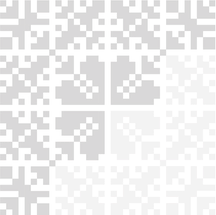C7 M3 L1 Grammar
7 | Modul 3: Gramatika
Svuda pođi, kući dođi
7 | 3 | Lekcija 1: Moje avanture
| Past Tense of Verbs
To refresh your memory on the Past Tense in Croatian, check the Grammar section in Unit 4.
Unit 4 - Module 2 Lesson 1 | Past Tense of the verbs ending in -ti |
Unit 4 - Module 2 Lesson 3 | Past Tense of the verbs ending in -ći |
As a continuation of the past tense, we should analyze verbs that end in -ovati, -evati, and -ivati.
| The verbs in -ovati, -evati, -ivati
These verbs will behave as any other -ti verbs. While in the present tense -ovati, -evati, and -ivati verbs have a special conjugation, in the past tense they behave as any other -ti verb. Look at the example below.
PUTOVA-TI | ||
[masculine] | [feminine] | [neuter] |
Ja sam putova-o. | Ja sam putova-la. | |
Ti si putova-o. | Ti si putova-la. | |
On je putova-o. | Ona je putova-la. | Ono je putova-lo*. |
Mi smo putova-li. | Mi smo putova-le. | |
Vi ste putova-li. | Vi ste putova-le. | |
Oni su putova-li. | One su putova-le. | Ona su putova-la*. |
* Rarely would we use personal pronouns for the neuter gender. It's more common just to use the neuter noun itself.
| The Position of the verb BITI in the past Tense
The position of the verb biti (to be) will always be the second word in a sentence when expressing a past tense action. In other words, if you start the sentence with a personal name or a pronoun the verb biti will follow immediately after. However, if you omit the personal name or a pronoun, the verb biti will follow after the verb. Look at the examples below.
With personal pronoun/name | Without personal pronoun/name |
On je gledao film. | Gledao je film. |
Marko je čitao knjigu. | Čitao je knjigu. |
| Reflexive Verbs in the Past Tense
When it comes to reflexive verbs, the pattern is the same. They follow the general rule in the past tense. The only difference is that they will have the reflexive pronoun se. Let us look at the verb voziti se in the 1st person singular form, in both the masculine and feminine genders.
With personal pronoun/name | Without personal pronoun/name |
Ja sam se vozio brodom. | Vozio sam se brodom. |
Ja sam se vozila brodom. | Vozila sam se brodom. |
The cluster verb biti reflexive pronoun se will always stay in that order. The cluster verb biti reflexive pronoun se will change its place, depending on whether or not we use a personal name or a pronoun as the subject. Let’s look at the reflexive verb sunčati se (to sunbathe) for example in all its forms.
SUNČATI SE - when used with a personal pronoun or name | ||
[masculine] | [feminine] | [neuter] |
Ja sam se sunčao. | Ja sam se sunčala. | |
Ti si se sunčao. | Ti si se sunčala. | |
On se sunčao. | Ona se sunčala. | Ono se sunčalo*. |
Mi smo sam se sunčali. | Mi smo se sunčale. | |
Vi ste sam se sunčali. | Vi ste se sunčale. | |
Oni su se sunčali. | One su se sunčale. | Ona su se sunčala*. |
* Rarely would we use the personal pronouns for neuter gender. It's more common just to use the neuter noun itself.
SUNČATI SE - when used without a personal pronoun or name | ||
[masculine] | [feminine] | [neuter] |
Sunčao sam se. | Sunčala sam se. | |
Sunčao si se | Sunčala si se. | |
Sunčao se. | Sunčala se. | Sunčalo se*. |
Sunčali smo se. | Sunčale smo se. | |
Sunčali ste se. | Sunčale ste se. | |
Sunčali su se. | Sunčale su se. | Sunčala su se*. |
* Rarely would we use the personal pronouns for the neuter gender. It's more common just to use the neuter noun itself.
As you can see, when it comes to reflexive verbs, the 3rd person singular (he, she, or it) will not use the verb biti (to be). You cannot say – On se je kupao.
7.3 Zadatak 1. Kome govori?
Here are some questions that Laura asked Davor and Sandra about their previous travels. Listen to the questions and decide whom Laura must be talking to.
Images used in this document are from these sources.




